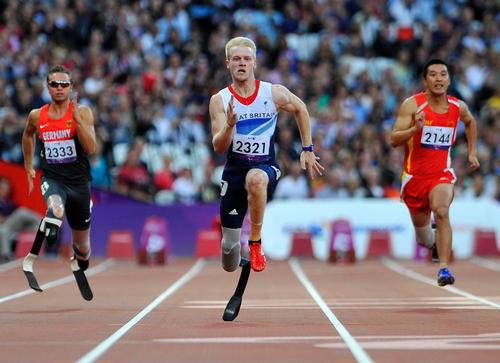see all jobs
London 2012 Paralympics has ‘transformed’ British attitudes towards disabled people
Nearly 70 per cent of Britons feel attitudes towards disabled people have improved since the London 2012 Paralympic Games.
The figure comes from the Department for Work and Pensions’ (DWP) Paralympic data from the ONS Opinions and Lifestyle Survey, which is part of a national, cross-sectional survey which conducts around 1,100 interviews each month and provides a snapshot of views and opinions.
According to Mike Penning, minister of state for disabled people, the changes in attitudes since 2012 have led to positive developments for disabled people across the country.
“London 2012 has helped lead to a transformation in the representation of, and attitudes towards, disabled people in Britain,” Penning said.
“It has challenged mind-sets and left a positive lasting legacy. But more still needs to be done to challenge perceptions.”
The London 2012 Games have also had a direct effect on participation levels in disability sport.
Government statistics show that there are now 315,000 more disabled people playing sport regularly than in 2005.
Paralympic triple-gold medallist Sophie Christiansen added: "London 2012 not only inspired a generation, it challenged the ideas of a generation about what disabled people were capable of.
"Just because we might be a bit different does not mean we should be looked at any differently. We all have unique talents and deserve the opportunity to fulfil our true potential."
• This year's Commonwealth Games in Glasgow will feature more disabled athletes than ever in the competition’s history. In total, there will be 20 disability sport events covering the five core Para-Sports – athletics, lawn bowls, powerlifting, swimming and cycling.
Background
This week marks the second anniversary of the Paralympic Games in London
Last year, Prime Minister David Cameron launched the Disability Confident campaign – designed to break down barriers in employing disabled people. The employment rate for disabled people is currently 45 per cent.
As well as the positive effects of London 2012, it is believed that attitudes towards disabled people have changed due to improvements being made to accessibility across the UK’s transport infrastructure – which has resulted in disabled people becoming “more visible” in everyday life.
• More than 8,100 rail carriages now comply with modern accessibility standards and a total of £500m will have been spent on upgrading railway stations to become more accessible by 2019.
• In the capital, 66 tube stations are now step-free and Transport For London plans to make a further 28 London underground and overground stations step-free over the next decade.
More News
- News by sector (all)
- All news
- Fitness
- Personal trainer
- Sport
- Spa
- Swimming
- Hospitality
- Entertainment & Gaming
- Commercial Leisure
- Property
- Architecture
- Design
- Tourism
- Travel
- Attractions
- Theme & Water Parks
- Arts & Culture
- Heritage & Museums
- Parks & Countryside
- Sales & Marketing
- Public Sector
- Training
- People
- Executive
- Apprenticeships
- Suppliers
















































